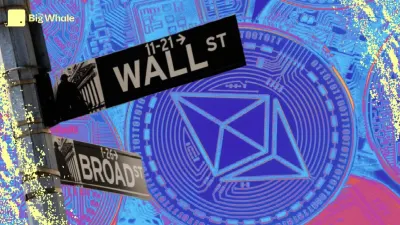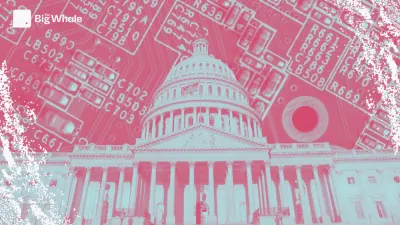Since December 2020, US start-up Ripple Labs, creator of the cryptocurrency XRP, has been at the centre of a legal tug-of-war with the Securities and Exchange Commission (SEC), the US financial watchdog. The SEC is accusing Ripple of illegally raising more than $1.3 billion through unregistered sales of XRP, which it considers to be a security. Ripple refutes the charges, arguing that XRP is a cryptocurrency, not a security subject to securities regulation.
This litigation has evolved over the years through a series of rulings, appeals and public statements, reflecting a clash between the (sometimes too) rapid innovation of the crypto industry and regulation perceived as outdated. As the case progresses, it has profound implications not just for Ripple, but for the entire cryptocurrency industry and the regulation of digital assets.
Chronology of Events Since the SEC filed the complaint in December 2020, the case has seen several major twists and turns. Initially, Ripple disputed the charges, claiming that the SEC had never provided clear guidance on the classification of digital assets. In July 2023, New York judge Analisa Torres issued a partial ruling in favour of Ripple, stating that sales of XRP on secondary markets, such as crypto-currency exchanges, did not constitute securities offerings. However, direct sales to institutional investors (primarily venture capital funds and financial institutions) were found to violate securities laws.
In August 2024, Ripple was fined $125 million by the court, well below the $2 billion initially sought by the SEC, marking a symbolic victory for the company. However, in October 2024, the SEC appealed this decision, while Ripple in turn counter-attacked to clarify other aspects of the judgment.
A turning point in January 2025? January 15, 2025 is an important date in this legal battle. The SEC is due to submit its final arguments to the appeals court, while Ripple will file its response in February. This deadline marks a potential tipping point in the case, as it could define the framework for future debates. In addition, speculation about a potential settlement or ruling in favour of Ripple is growing. Some analysts, such as attorney Jeremy Hogan, believe that a settlement could come under a more cryptocurrency-friendly administration, especially after the change in leadership at the SEC and the scheduled departure of its chairman Gary Gensler, who has been in place since 2021.
Change in leadership at the SEC: An opportunity for Ripple? The imminent departure of Gary Gensler, scheduled for 20 January 2025 i.e. the day of the Trump administration's inauguration, could be a major turning point. Known for his tough approach to cryptocurrencies, Gary Gensler has often been criticised for his excessive use of lawsuits against the industry. His prospective successor, Paul Atkins, is seen as more supportive of technological innovation and could take a less confrontational approach to digital assets. According to Christopher Giancarlo, former chairman of the Commodity Futures Trading Commission (CFTC) - the second-largest US financial regulator - and an advocate of cryptocurrencies, the SEC may even drop its appeal against Ripple once Gary Gensler is replaced. Such a change of course could allow Ripple to reach a negotiated settlement, avoiding a prolongation of this legal battle that has already cost the company more than $150 million in legal fees.
Ripple strikes back: The main thrusts of the appeal In response to the SEC's appeal, Ripple has initiated a new proceeding aimed at clarifying several crucial points in the case. The company is challenging the legal definition of an "investment contract", arguing that the XRP sales do not meet the criteria established by the Howey test (which determines whether or not an asset is a security). Ripple also claims that the SEC has never provided clear guidance on the classification of cryptocurrencies. Finally, the company is seeking to limit the scope of the court's injunction, which could impose unnecessary restrictions on its future activities. These initiatives reflect a proactive strategy to secure definitive legal victories and protect its business.
Implications for the cryptocurrency industry Ripple's litigation against the SEC goes beyond the company itself and could redefine the regulatory landscape for digital assets in the US. The partial ruling in the summer of 2023 that XRP sales on secondary markets do not constitute securities has already set a legal precedent that could benefit other crypto projects. However, uncertainty remains over the classification of institutional sales, potentially holding back cryptocurrency adoption in the US. In addition, the outcome of this case could influence the way regulators approach digital assets, encouraging a more collaborative and less punitive approach. Industry players are also awaiting clarification on the applicable rules, as the lack of a clear framework is hampering their ability to innovate and grow.
The next steps The coming months will be decisive. After the final arguments from all sides are filed in January and February 2025, oral arguments are scheduled for September or October of the same year. A final decision could be handed down in early 2026, unless a settlement is reached before then. Meanwhile, political developments at the SEC and the possible passage of more crypto-friendly legislation under a pro-crypto administration could reshape the regulatory framework. In the meantime, Ripple continues to defend its business model and its role in the cryptocurrency ecosystem, while seeking to establish case law that would encourage innovation.





